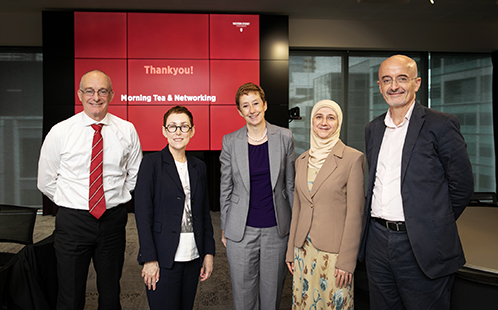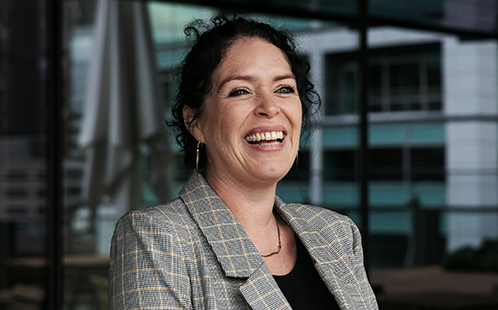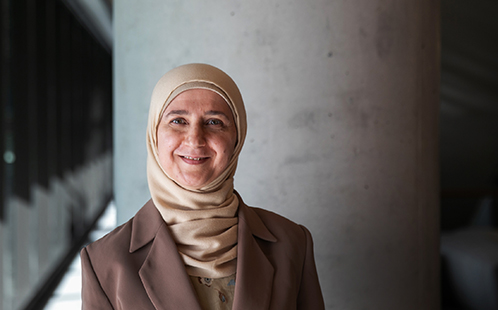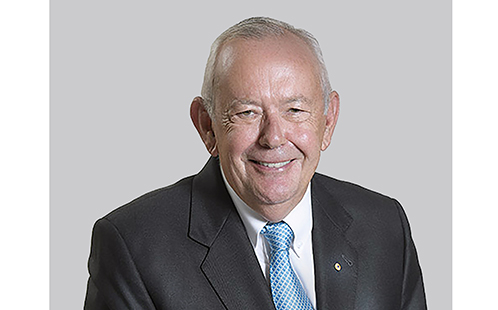Second cohort of new ongoing staff welcomed in sector-leading academic decasualisation program

Professor Kevin Dunn, Provost; Professor Maryanne Dever, Deputy Vice-Chancellor Education; Professor Clare Pollock, Senior Deputy Vice-Chancellor; Dr Shatha Aziz, Associate Lecturer, School of Computer, Data and Mathematical Sciences; and Professor Clive Baldock, Dean of Graduate Studies & Researcher Development
Western Sydney University is pleased to announce the second cohort of ongoing academic staff appointed as part of the University’s sector-leading academic decasualisation program, developed in collaboration with the National Tertiary Education Union (NTEU).
The Program is increasing the number of secure, early career academic positions available at the University, while reducing its reliance on casual teaching engagements.
Over 60 successful candidates have been appointed in 2024 as part of the program, adding to the first 30 appointed last year.
The University welcomed the new staff at an event with senior leaders, including the Senior Deputy Vice-Chancellor, Professor Clare Pollock and the Provost, Professor Kevin Dunn. The latest staff are teaching across a range of disciplines, including nursing and midwifery, humanities, education, STEM, and social sciences. The recruitment round also saw five Indigenous staff appointed.
The University will appoint 150 FTE ongoing positions in total, negotiated with the NTEU as part of the University’s Academic Staff Agreement. The aim is to reduce the University’s use of casual academic employment for non-clinical teaching by at least 25 per cent over the nominal term of the Agreement.
Both the University and the NTEU welcomed this latest milestone as an important step in a large-scale undertaking to address the long-term challenges of academic precarity which addresses the over-reliance on academic casualisation identified in the Australian Universities Accord Final Report.
“Western Sydney University is pleased to welcome the second cohort of ongoing academic staff appointed as part of our sector-leading decasualisation program. On behalf of the University community, we extend a warm congratulations to these academic staff on their appointments. These new ongoing positions represent a significant commitment by Western Sydney University and the NTEU to address the issue of insecure work in the sector, providing our academic staff with increased certainty and job security,” said Senior Deputy Vice-Chancellor, Professor Clare Pollock.
“The NTEU is immensely proud that this academic decasualisation program, which aims to convert a substantial part of the labour previously performed by casual staff to ongoing roles, was the first of its kind in the sector, reflecting Western's commitment to decency and fairness. We offer our warm congratulations to this second group of around 60 successful staff, and we look forward to the appointment of the remaining 60 staff out of the original total of 150. Western was first into this crucial initiative, and on the current timetable it will also be the first to finish the job,” said Dr David Burchell, Branch President, National Tertiary Education Union, Western Sydney University Branch.

Lindsay McCabe, Associate Lecturer, School of Social Sciences
Lindsay McCabe, a proud Palawa woman who grew up on Darug Country in western Sydney, has secured an ongoing role as an Associate Lecturer in criminology within the University’s School of Social Sciences as part of the second cohort.
With a strong passion for Aboriginal education, and for seeing Mob succeed in their goals, Lindsay brings a unique perspective to her role and teaching. Her research background is in the critical analysis of the experiences of Aboriginal families in NSW who have become engaged with the coronial system through the death of a loved one.
“My area of research is focused on the coronial system in NSW – when someone dies and their death is reported to the Coroner, what is that like for their families to experience those processes? My research is particularly interested in what this system is like for Aboriginal families, and for Mob who work in that space,” said Lindsay.
“The decasualisation program means stability – after years of working on casual contracts, at one point eight at a time, having an ongoing role means I am able to plan for the future for myself and my son. It’s a feeling of security, and takes away the stresses of not knowing if I’ll be employed next semester, which means I have more mental capacity to focus on my work and my family.”
Dr Shatha Aziz, an Associate Lecturer within the School of Computer, Data and Mathematical Sciences, was among the speakers at the welcome event. Dr Aziz shared her journey and reflections having secured an ongoing role as part of the first cohort of appointments.
As an expert in mathematical science with over a decade of experience at Western Sydney University, she highlighted the invaluable support and encouragement the program provides.
“Being able to work on my research while advancing my teaching career and feeling a sense of belonging as an ongoing academic staff member has had a huge impact on my career and personal life,” said Dr Aziz.
“Furthermore, decasualised cohorts are provided with two intensive support streams relating to teaching and research. This targeted support has accelerated my career progression and enhanced my skills and abilities.”
The University will shortly commence recruitment for its final cohort of 60 ongoing academic staff under the program.

Dr Shatha Aziz, Associate Lecturer, School of Computer, Data and Mathematical Sciences
ENDS
15 March 2024
Photo credit: Sally Tsoutas
Latest News

Opinion: What do we lose when our old suburbs disappear?
I live on the edge of Parramatta, Australia’s fastest-growing city.

Opinion: Most bees don’t die after stinging – and other surprising bee facts
Most of us have been stung by a bee and we know it’s not much fun. But maybe we also felt a tinge of regret, or vindication, knowing the offending bee will die. Right? Well, for 99.96% of bee species, that’s not actually the case.

Western Sydney University receives transformational donation to support LGBTIQA+ community
Western Sydney University has welcomed a philanthropic donation from The Brennan Lynch Foundation.
Mobile options:

